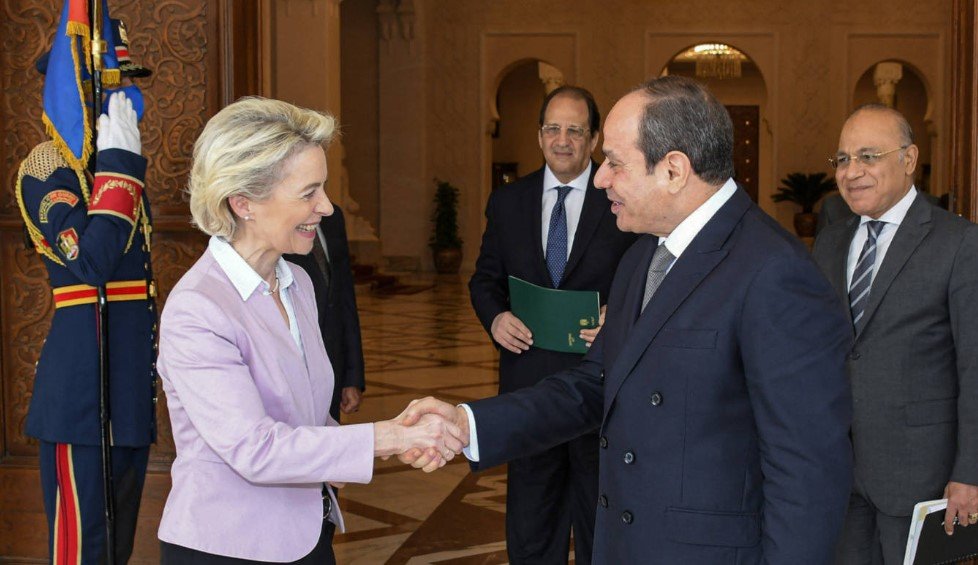Foreign Minister Abdelatty engages Palestine, Tunisia, and Czech Republic in bid to curb regional fallout
CAIRO — Egypt is stepping up its diplomatic offensive as the Middle East braces for wider conflict. On Monday, Foreign Minister Dr. Badr Abdelatty reached out to three regional and international counterparts—Palestine, Tunisia, and the Czech Republic—amid rising fears that the Gaza war could spiral even further following Israel’s attacks on Iranian targets.
In a flurry of urgent phone calls, Abdelatty sought to reaffirm Egypt’s commitment to halting the violence, pressing for humanitarian access into the besieged enclave and denouncing Israeli policies that Cairo now openly calls “collective punishment.”
Israel-Iran Tensions Raise the Stakes for Everyone
If things weren’t already bad enough in Gaza, the latest flare-up between Israel and Iran has lit a new fuse under an already volatile region. Abdelatty’s outreach on Monday was more than just routine diplomacy—it was a signal. Egypt doesn’t want this conflict to go global.
The conversation with Palestinian Prime Minister and Foreign Minister Dr. Mohamed Mostafa wasn’t sugarcoated. According to Cairo, Israel’s military actions against Iran aren’t isolated—they’re part of a pattern of escalation with serious implications for the region. And Egypt is worried.
One Egyptian diplomat familiar with the matter described Cairo’s mood in blunt terms: “We’re not just talking about Gaza anymore. We’re talking about a fire that could jump borders fast.”

Egypt Balances a Tough Line: Support for Gaza, But Caution on Wider War
Abdelatty’s stance has hardened in recent weeks. Monday’s calls showed it clearly. He didn’t mince words on Gaza—Egypt is furious over the continued blockade and what it sees as deliberate starvation tactics.
Still, he’s not trying to provoke Israel. Egypt’s working with both the United States and Qatar behind the scenes to restart ceasefire talks. Abdelatty’s message? Push for peace, but don’t back down on principles.
Here’s what Egypt emphasized during the Palestinian call:
-
Immediate need to resume ceasefire negotiations.
-
Full, unrestricted humanitarian access into Gaza.
-
Opposition to “collective punishment” tactics by Israel.
-
Support for a two-state solution as the only viable endgame.
And one line that stood out: Abdelatty called Israel’s blockade “a grave violation of international humanitarian law.” That wasn’t a slip—it was a calculated move.
Tunisia Conversation: Solidarity or Strategy?
Later that day, Abdelatty rang up his Tunisian counterpart. The timing wasn’t random. Just hours earlier, a pro-Palestinian convoy from Tunisia—the Sumud Delegation—was blocked from continuing to Gaza by Egyptian and Libyan authorities.
Publicly, Egypt says it didn’t grant the caravan permission due to security concerns. But privately, it’s trying to avoid a PR mess.
Tunisia’s government, under pressure at home, has remained quiet. Monday’s call, officials say, helped smooth some edges. Abdelatty reiterated Cairo’s support for the Palestinian cause, while also urging “coordination over efforts,” a polite way of saying: don’t freelance.
This part of the conversation didn’t make headlines, but it mattered.
A Surprising European Link: The Czech Republic
You wouldn’t expect Prague to be at the heart of a Gaza crisis discussion. Yet, Abdelatty made time for Czech Foreign Minister Jan Lipavský too. Why?
For one, the Czech Republic holds strong ties with both Israel and the EU. Egypt sees it as a potential bridge—especially as frustration grows in Arab capitals over what they see as Europe’s muted response.
Sources say the two diplomats discussed:
-
EU’s role in pressuring Israel for humanitarian corridors.
-
Avoiding broader confrontation with Iran.
-
Reinforcing international law and accountability frameworks.
Abdelatty reportedly urged the Czech side to push Brussels toward a more “balanced” stance. Whether it works is another question entirely.
Egypt’s Diplomatic Strategy at a Glance
Here’s how Egypt is playing its cards, both regionally and internationally. It’s a high-stakes balancing act:
| Action | Objective | Risk |
|---|---|---|
| Talks with Palestine | Show moral leadership, maintain ceasefire mediation role | Accusation of siding against Israel |
| Talks with Tunisia | Manage grassroots pressure without undermining security | Domestic backlash if seen as obstruction |
| Talks with Czech Republic | Leverage EU ally to shift Western tone | Seen as weak if results don’t materialize |
It’s a tightrope walk, but Egypt has done it before.
Gaza’s Humanitarian Crisis Remains the Flashpoint
While diplomacy unfolds, conditions on the ground in Gaza are only getting worse. Aid trucks are stuck. Medicines are running low. Families are living in makeshift tents under skies that could explode any moment.
One Egyptian Red Crescent official said simply: “The window is closing. Every delay costs lives.”
Abdelatty’s condemnation of starvation policies wasn’t just rhetoric—it reflects growing pressure from humanitarian organizations inside Egypt, many of whom are struggling to get even basic supplies to the Rafah border.
And still, the political deadlock persists.
What’s Next for Egypt?
It’s unclear whether Abdelatty’s flurry of calls will lead to a breakthrough. But one thing’s for sure: Egypt isn’t staying quiet.
Whether through coordination with Qatar and the U.S., pressure on European governments, or subtle warnings to North African allies, Cairo is doing what it can to contain the crisis.
